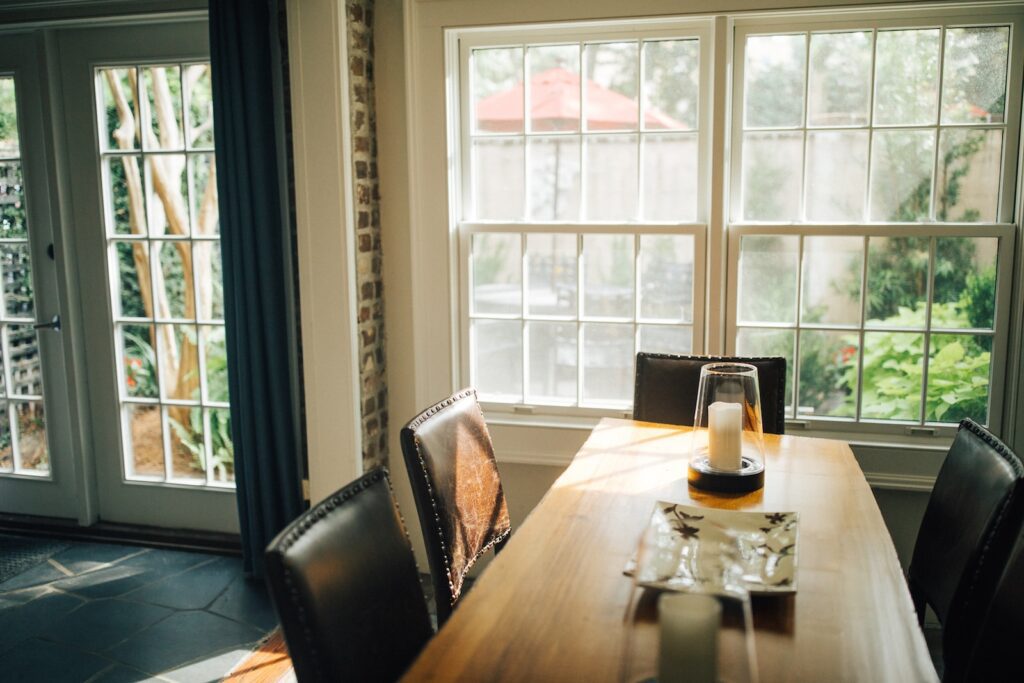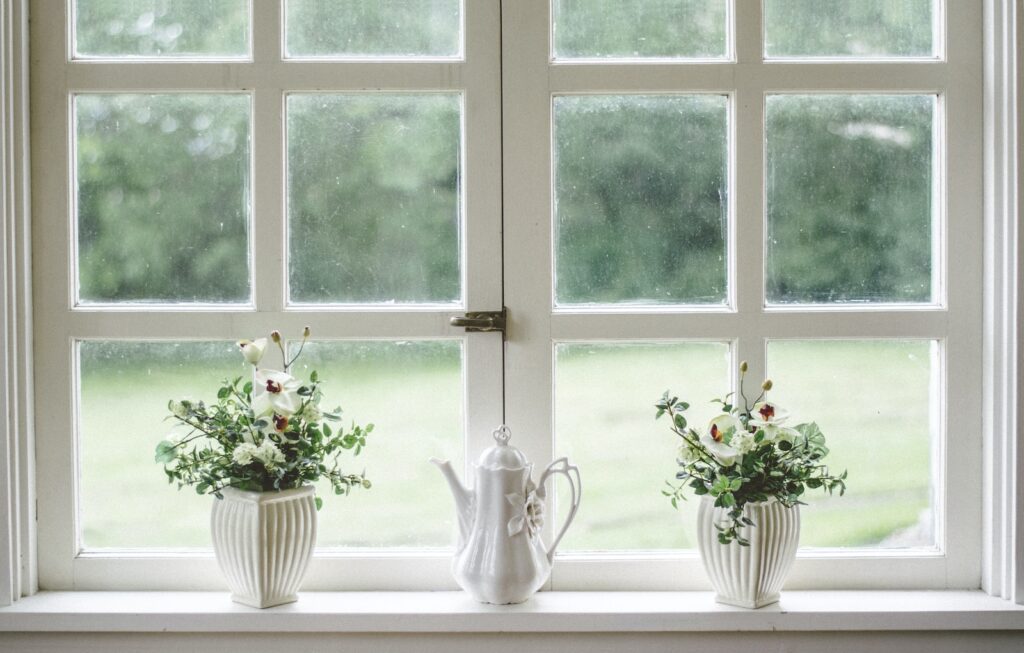Are you tired of drafty windows causing high energy bills and discomfort in your home? If you’re a renter, you may feel helpless in getting your landlord to replace them. But fear not, there are steps you can take to persuade your landlord to make this necessary upgrade. Keep reading to learn how to effectively communicate with your landlord and get those windows replaced.
Replacing windows may seem like a daunting task, but with the right approach, you can make it happen. It’s important to understand your rights as a tenant and to have a clear plan of action. By following the tips in this article, you’ll be on your way to a more comfortable and energy-efficient living space in no time.

As a tenant, you have the right to live in a safe and comfortable environment. One of the most important components of a comfortable living space is windows. However, if your windows are old, broken, or inefficient, they can cause a range of problems, including drafts, leaks, and high energy bills. If you’re struggling with windows that need to be replaced, don’t worry. In this article, we’ll discuss some tips and tricks for getting your landlord to replace your windows.
1. Understand Your Rights as a Tenant
Before you start demanding that your landlord replace your windows, it’s important to understand your rights as a tenant. In most states, landlords are required to provide their tenants with a safe and habitable living space. This means that they are responsible for maintaining the property in good condition, including the windows. If your windows are damaged, broken, or inefficient, your landlord may be obligated to replace them.
To determine your rights as a tenant, you should refer to your lease agreement and your state’s landlord-tenant laws. If you’re not sure where to start, you can contact a local tenants’ rights organization or a lawyer who specializes in landlord-tenant law.
2. Document the Problem
If your windows are in poor condition, it’s important to document the problem. Take pictures of the damage or issues with your windows, and keep a record of any conversations or emails you have with your landlord about the problem. This documentation will be useful if you need to take legal action or file a complaint with your local housing authority.
3. Communicate with Your Landlord
Once you have a clear understanding of your rights and have documented the problem with your windows, it’s time to communicate with your landlord. Start by sending an email or letter explaining the issue and requesting that the windows be replaced. Be polite and professional in your communication, and provide any documentation or pictures you have of the problem.
If your landlord doesn’t respond to your initial request, follow up with a phone call or another email. It’s important to stay persistent and keep track of all communication.
4. Offer to Share the Cost
If your landlord is hesitant to replace the windows due to cost, consider offering to share the cost. You can offer to pay for a portion of the replacement or offer to pay for the entire replacement in exchange for a rent reduction or other concessions.
5. Get a Quote
If your landlord is willing to replace the windows but is unsure of the cost, offer to get a quote from a reputable window replacement company. This will give your landlord an idea of the cost and may make them more willing to move forward with the replacement.
6. File a Complaint
If your landlord refuses to replace the windows and you believe they are in violation of your lease agreement or state law, you can file a complaint with your local housing authority. In some cases, the housing authority may be able to compel your landlord to make the necessary repairs or replacements.
7. Consider Legal Action
If all else fails, you may need to consider legal action. Consult with a lawyer who specializes in landlord-tenant law to determine your options. Keep in mind that legal action can be expensive and time-consuming, so it should be a last resort.
8. Benefits of Replacing Windows
Replacing old or damaged windows can have a range of benefits for tenants. New windows can improve energy efficiency, reduce noise pollution, and increase the overall comfort of your living space. They can also improve the value of the property and make it more attractive to potential renters or buyers.
9. Windows Replacement Vs Window Repair
While repairing windows may seem like a cost-effective solution, it may not be the best long-term option. In some cases, repairing windows can be more expensive than replacing them, and repairs may not address the underlying issue. Additionally, repaired windows may not be as energy-efficient or durable as new windows.
10. Conclusion
If you’re struggling with windows that need to be replaced, don’t give up. By understanding your rights, documenting the problem, and communicating with your landlord, you can increase your chances of getting the windows replaced. If all else fails, consider legal action or filing a complaint with your local housing authority. Remember that replacing windows can have a range of benefits for tenants, including improved energy efficiency, noise reduction, and overall comfort.
Frequently Asked Questions
Here are some commonly asked questions about how to get your landlord to replace windows in your rental property.
What is the best way to approach my landlord about window replacement?
The key to getting your landlord to replace your windows is to approach the conversation in a respectful and professional manner. Start by scheduling a meeting with your landlord and make sure to come prepared with research and evidence that supports your request for new windows.
You can also offer to split the cost with your landlord or suggest that they consider financing the project through a low-interest loan or grant.
What are some signs that my windows need to be replaced?
If you notice any of the following signs, it may be time to consider replacing your windows: drafts, condensation, peeling or cracked paint, difficulty opening or closing the windows, or excessive noise from outside. These issues not only affect the comfort of your home but can also impact your energy bills.
If you are unsure whether your windows need to be replaced, consider hiring a professional to conduct a window inspection and provide you with an estimate for replacement.
What are my rights as a tenant when it comes to window replacement?
Your rights as a tenant regarding window replacement will vary depending on your location and the terms of your lease. In general, however, your landlord is responsible for maintaining the property in a safe and habitable condition, which may include replacing windows that are old, damaged, or inefficient.
If you are having trouble getting your landlord to replace your windows, consider contacting a tenant advocacy organization or a lawyer who specializes in landlord-tenant law.
Can I deduct the cost of window replacement from my rent?
You should not deduct the cost of window replacement from your rent unless you have received written permission from your landlord. Attempting to do so could result in legal action against you and potential eviction.
If you believe that your landlord is not fulfilling their responsibilities to maintain the property, consider filing a complaint with your local housing authority or taking legal action.
What should I do if my landlord refuses to replace my windows?
If your landlord refuses to replace your windows, you may need to take legal action. Start by sending a written request for window replacement, and keep a copy of the letter for your records. If your landlord still refuses to make necessary repairs, consider contacting a lawyer who specializes in landlord-tenant law or filing a complaint with your local housing authority.
Remember that it is ultimately your landlord’s responsibility to ensure that the property is safe and habitable. If they are not fulfilling this obligation, you have the right to take action to protect your health and safety.
In conclusion, getting your landlord to replace your windows can seem like a daunting task, but it is not impossible. The first step is to communicate your concerns with your landlord in a clear and concise manner. Be sure to provide evidence of the issues you are experiencing with your windows, such as drafts or condensation.
If your landlord is hesitant to replace the windows, you may need to remind them of their legal responsibility to provide safe and habitable living conditions for their tenants. You can also offer to split the cost of the new windows or suggest financing options that may be available.
Remember, replacing windows is not only important for your comfort and safety, but it can also increase the value of the property. By working with your landlord and finding a solution that benefits both parties, you can ensure that your living space is comfortable and secure for years to come.


